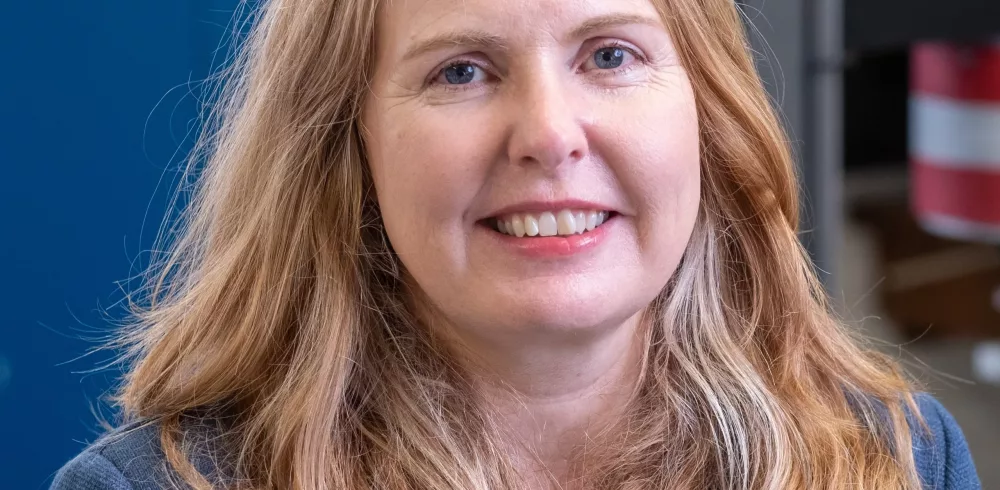A Bristol engineer whose work helps prepare the UK for risks and crises, such as terrorism and natural disasters, has been awarded Fellowship of the Institution of Civil Engineers (ICE). Caroline Field, who leads National Resilience at PA Consulting, a global innovation and transformation consultancy, is a pioneer for women in engineering, having spent her 30-year career encouraging and supporting women in the profession.
Caroline has a background in infrastructure resilience, including 12 years in counter terrorism, blast mitigation and physical security and seven years in earthquake engineering and dynamics. She has spent the past decade combining her expertise with social resilience to help people and organisations improve their adaptive capacity to risks and threats.
She currently chairs the ISO Urban Resilience Standard Working Group and is a Royal Academy of Engineers Visiting Professor of Structural and Infrastructural Resilience at Loughborough University.
The ICE Fellowship awarded to Caroline is the highest grade of membership at the institution for those who have made a significant contribution to civil engineering.
Speaking on International Women’s Day on Friday 8 March 2024, Caroline said: “It feels really significant for me personally to have achieved Fellowship of the institution. I joined the civil engineering profession back in the ‘90s when there were no female role models, and I was one of a handful of female graduates. I have always felt the need to be technically excellent in my field to receive respect from my male colleagues.
“Being a pioneer can be uncomfortable for myself and others. Challenging behaviours and expectations is never easy, particularly as I became more senior. I am passionate about creating equitable, more sustainable and resilient societies and I want to start by giving back to the engineering profession through supporting women in engineering, mentoring and through my Resilient Women Leaders programme.”
Recently, Caroline teamed up with the business network, Resilience First, to host an evening on Thursday 25 January to bring together a broad range of women working in resilience. This included guest speakers, Baroness Fiona Twycross (Deputy Mayor and Chief Resilience Officer for London) and Baroness Lucy Neville-Rolfe (Minister of State, Cabinet Office) as well as representatives from Greater Manchester Combined Authority, Northumberland County Council, Tesco, Cabinet Office, Lloyds Register Foundation, Arup, and Prince’s Trust.
Caroline commented, “It is an exciting time in resilience with the UK’s National Resilience Framework (UKGRF), led by the UK’s Resilience Director, Mary Jones, providing an opportunity to really shape the future.
“Given the change in focus in the UKGRF from response to prevention and building societal resilience rather than just emergency response, this opens opportunities for women leaders to bring an inclusive, empowering, and collaborative style of leadership that is needed to build whole society resilience.”
Last week, Caroline took part in a global event, ICE Connects: growing the women in Fellowship network, aimed at improving diversity across leadership roles. Livestreamed to an audience in Bristol, the event connected female engineers in Bristol with those around the UK and internationally. A thought-provoking panel of distinguished speakers, including ICE President, Professor Anusha Shah, addressed the critical need for increased representation of women at the ICE’s highest grade of membership and across the breadth of the engineering professions. The panel highlighted the ICE’s dedication to creating a more inclusive and equitable infrastructure landscape.
Miranda Housden, regional director of ICE South West, said: “Caroline is a fantastic role model for women in leadership within engineering and an inspiration for women starting their journey towards ICE Fellowship.
“We’re delighted to see her many achievements in infrastructure resilience recognised and we are grateful for her support of ICE’s commitment to fostering diversity and inclusion within the civil engineering community.”
The ICE’s overall female membership has almost doubled over the last 15 years from 8.4 to% to 16.3%. The latest data suggests that change is accelerating among younger age groups, with women making up around 23% of members under the age of 40 and more than 24% of trainees (members on an active ICE training agreement).
To find out how you can solve the problems of the future by becoming a civil engineer, visit: www.ice.org.uk.
Manufacturing & Engineering Magazine | The Home of Manufacturing Industry News













